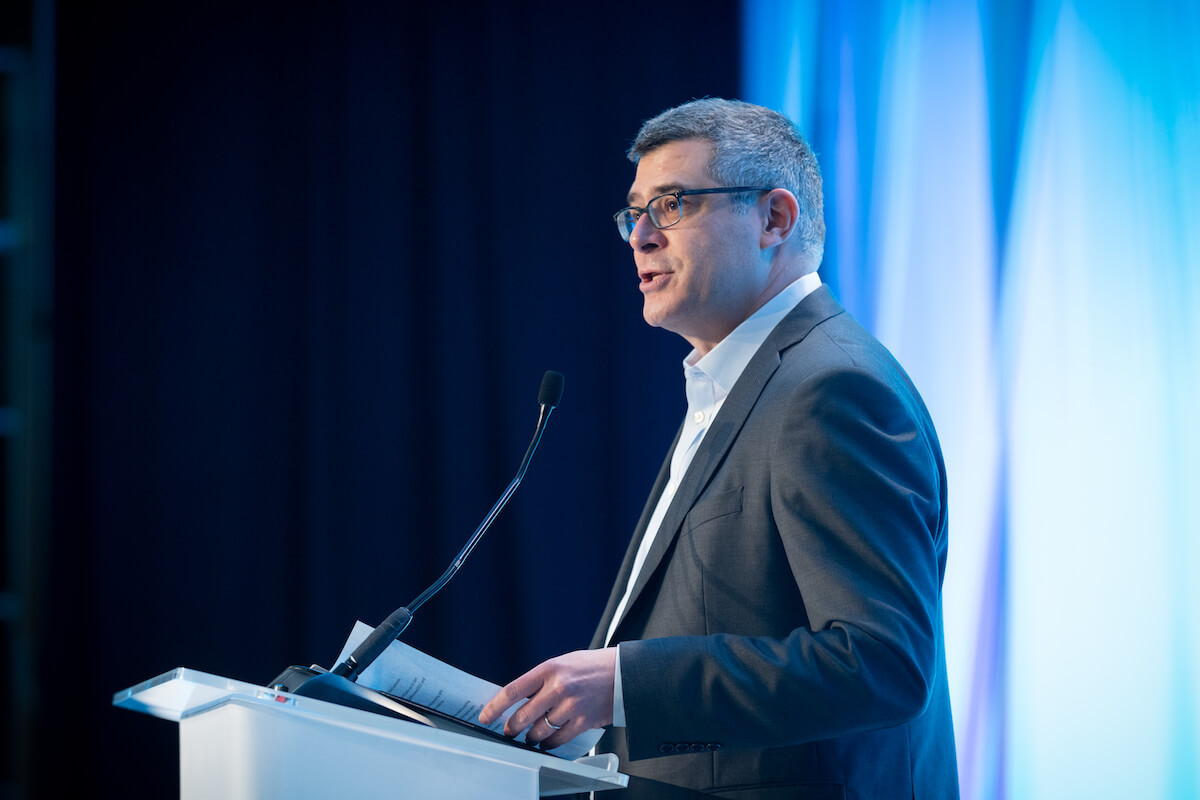Greetings, Agents of Impact!
Featured: ImpactAlpha Original
Rockefeller’s $60 million impact fund manager leverages ‘catalytic capital’ for scale. On the hunt for billion-dollar innovations to meet the Sustainable Development Goals, the Rockefeller Foundation has spotted more than a few such potential unicorns. Possible investors to its “Zero Gap” grant portfolio, raised an obvious objection: “If this is such a good idea, why isn’t Rockefeller also supporting it?” Now, in a half-dozen or more deals, Rockefeller is putting “catalytic capital” where its mouth is. The foundation is one of the first to create a registered impact investment management company to manage other investors’ capital. The first, the MacArthur Foundation, last spring committed $30 million, matched by $30 million from Rockefeller itself, to invest in “Zero Gap” financing vehicles.
Rockefeller’s Impact Investment Management LLC is flexing its new muscles as well by working to raise $40 million to catalyze $1 billion in commercial capital to develop up to 10,000 mini-grids to bring electricity to 22 million people in India. The fund manager is working with a major private equity investor to co-create a “resilient infrastructure” fund in which Rockefeller will be an anchor investor. “We know that in the next 50 years, more infrastructure will be built than has been built since the beginning of time. It’s a massive industry,” Rockefeller’s Lorenzo Bernasconi told ImpactAlpha. “We want to find investors who are interested in doing this in the best way possible.” Rockefeller, along with MacArthur and Omidyar Network, have formed the Catalytic Capital Consortium to demonstrate the value of such high-risk or low-return investments in crowding in additional investors, including in a dozen sessions at SOCAP this week. “This will be part of what the future of finance looks like,” Bernasconi says. More and more catalytic capital will be deployed alongside commercial capital.”
Keep reading, “Rockefeller’s $60 million impact fund manager leverages ‘catalytic capital’ for scale,” by David Bank on ImpactAlpha.
Dealflow: Follow the Money
Winnebago backs Motiv to convert trucks to electric. The driving miles Americans rack up each year, just for fun, leave a big carbon footprint. An icon of the all-American road trip, Winnebago, is backing San Francisco-based Motiv Power Systems to turn gas-powered trucks into electric vehicles. The $60 million round of equity financing will help Motiva open a Detroit manufacturing facility for large fleets. Motiv worked with Winnebago on all-electric mobile screening clinics for the American Lung Association. Other uses of Motiv’s systems: USPS, Aramark and Bimbo Bakeries as well as public school districts, which deploy electric school buses. Alongside Winnebago, GMAG Holdings, which backed Motiv’s earlier $7 million financing, led the Series B round. Check it out.
Mastercard and other philanthropies grant $71 million for ‘inclusive growth.’ The investments include $7.5 million for Benefits Data Trust, which is using digital platforms and machine learning to streamline access to food, healthcare, housing and other benefits. Mastercard’s Center for Inclusive Growth also committed $26 million to the Aspen Institute to “address income and information inequality through the lens of inclusive growth.” An inclusive growth toolkit will include an “inclusive growth score” that maps measures of inclusion and growth for Opportunity Zones down to the census-tract level. The grants will be announced at today’s Global Inclusive Growth Summit in Washington, D.C.
Catalyst Fund clinches $13 million from DfID. The early-stage accelerator Catalyst Fund, a collaboration between Gates Foundation and JPMorgan Chase, supports tech startups expanding financial services to underserved customers. Funding from DfID, the U.K. development financing institution, will enable Catalyst Fund to back 30 startups in Africa, Latin America, India and Southeast Asia.
VentureBuilder launches to invest in Africa’s off-grid solar startups. The firm will provide long-term financing to early-stage, African-owned solar companies. It’s backed by an undisclosed amount of capital from Facebook, Shell Foundation, USAID, and the Netherlands’ DOEN Foundation.
South Africa’s Enygma Ventures rolls out $6.8 million women-focused fund. Enygma will enroll a cohort of 10 female entrepreneurs from across Southern Africa in a six-month incubator program and invest seed funding. The firm is working to narrow the capital gap for female founders in the region.
World Bank’s KCIC extends loan to precision ag startup Lentera. Kenya-based Lentera offers small farmers provides software, sensors, imaging and market information to improve their productivity. The Kenya Climate Innovation Center, an initiative of the World Bank, provided the company with working capital as it raises an equity funding round.
Signals: Ahead of the Curve
Creating physical spaces where innovation can flourish. Entrepreneurship drives economic renewal. How can cities drive entrepreneurship? The folks at Revolution’s Rise of the Rest Fund have a suggestion: create a physical space where founders get close, regular contact with other creators to explore what is possible. “Scaling a startup requires network density,” the firm reports in its ‘Playbook’ series (see, “How Rise of the Rest will have impact — and why it’s not an impact fund,” by Revolution’s Steve Case, on ImpactAlpha). The Revolution team identified 10 innovative physical hubs it found on its cross-country tours. The four models:
- Anchor tenant. Corporations and local organizations can lend capital and credibility to establish a hub. The Green Bay Packers, along with Microsoft, created TitletownTech, featuring an innovation lab and venture fund, next to Lambeau Field in Green Bay, Wisc.
- Innovation district. Many cities have established districts aimed at fostering entrepreneurial activity. But business and nonprofit leaders can also play a key role. Phoenix’s once-empty warehouse district now teems with 130 startups and creative ventures. The city’s infrastructure improvements include connections to light rail. Local success story WebPT relocated to the district.
- Vertically integrated. Physical spaces with different types and stages of businesses fuel collaboration. Each of the ten floors in Chattanoga’s The Edney is tailored a specific need: startup acceleration, STEM education, coworking, offices for local businesses and the city’s tech staff, and public event space.
- Work-live-play. Tech companies like Google offer amenities and even housing so employees don’t need to leave campus. Lake Nona, a 17-square mile residential and commercial development in Orlando, Fla., was intentionally designed to support business, research, education and health. The Wellness Home built on Innovation and Technology (WHIT) gives startups from around the world a place to test their ideas and products.
- Share this post.
Agents of Impact: Follow the Talent
Phenix Capital holds its Impact Summit America Nov. 14 in New York… The U.K.’s Impact Programme has opened its First Call for Concept Notes for innovative ideas for achieving SDG goals for Sub-Saharan Africa and South Asia… ImpactAlpha readers get a special discount to TONIIC and D3 Jubilee Partners’ 2019 Asia Impact Nights taking place Nov. 21-23 on Jeju Island, South Korea.
Thank you for reading.
– Oct. 21, 2019











